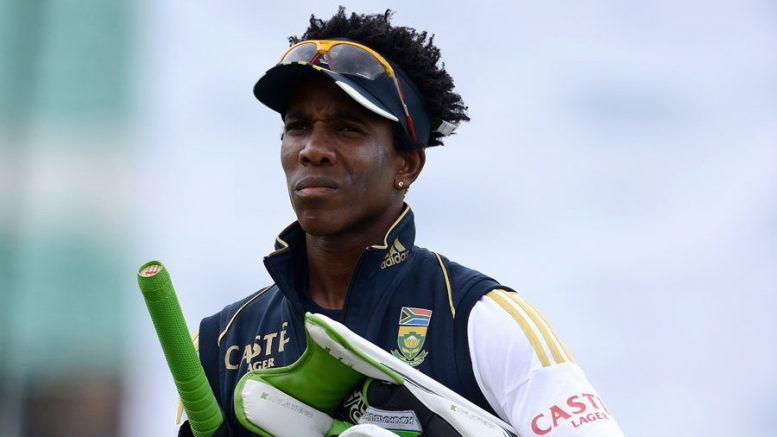There must be empathy and sympathy with #BlackLivesMatter. There has to be listening and understanding. But there also has to be perspective and an unemotional unpacking of when the subject is #BlackLivesMatter or when #BLM is a convenient mask, writes MARK KEOHANE for the Cape Times.
The ramblings of former Springbok hooker Chiliboy Ralepelle and former Proteas cricketer Thami Tsolekile have dominated the past week’s sporting news.
Both have been vocal about racism in South African sport and about the prejudice each faced in their sporting careers.
Both, though, are banned internationally from their respective sports: one for drug cheating and one for match-fixing.
Ralepelle is the drug cheat, caught three times in the past 10 years, and banned for eight years for his third conviction.
Ralepelle, head prefect at Pretoria Boys High and a Springbok captain at 21 years old, was acknowledged as one of the most talented schoolboy rugby products. He was playing international rugby at 21, but over a period of 10 years never delivered on the promise of a player earmarked to succeed 2007 World Cup-winning captain John Smit as South Africa’s premier hooker. Smit, coincidentally, also attended Pretoria Boys High.
When Ralepelle talks about prejudice, it is not for me to counter his views of what he says he experienced as a player. It is for me and whoever else is listening, to simply listen and attempt to understand what black players have experienced in what then was a largely white-dominated sport.
But when Ralepelle conveniently calls himself a ‘fall guy’ based on the colour of his skin when it comes to his convictions and suspensions on drug-cheating charges, then he is being very lenient with the truth of his situation and is misrepresenting the essence of #BlackLivesMatter and the storytelling of so many black players in this country and elsewhere.
Ralepelle wasn’t banned from all rugby on this planet because of the colour of his skin. He was banned because of three failed drug tests in the past 10 years. That ‘not so little detail’ needs repeating.
SA Rugby magazine columnist Ryan Vrede tellingly wrote that science and testing processes don’t know colour and they weren’t wrong every time Ralepelle tested positive.
‘His road to redemption is with being honest with himself,’ wrote Vrede. ‘Of all the people whose belief and trust he betrayed with these decisions, he hurt none more than himself.’
Tsolekile’s public comments in naming and shaming those he accuses of being at the forefront of racism in cricket must also be absorbed, listened to and appreciated.
Tsolekile’s cricketing career, another rich in promise, stuttered more than it soared.
Tsolekile felt a certain prejudice as a black player and he felt it impacted on his standing within the national squad. Listen to him and take the lessons from his words.
But, like Ralepelle, Tsolekile’s cricket career was ended because of a conviction of match-fixing.
Tsolekile earlier in the week accused Cricket South Africa of prejudice against black players and said white players were favoured in the investigation and excused because they were white.
Cricket South Africa dismissed Tsolekile’s claims with a factual response that the investigation was carried out by CSA’s Anti-Corruption Unit under the guidance and authority of former Judge Bernard Ngoepe, a former Judge President of North Gauteng and South Africa. The investigation was conducted in collaboration with specialist external lawyers, the ICC, the BCCI, the Hawks and an external digital forensic team.
Judge Ngoepe was insistent in his response: ‘The allegation that the investigation deliberately targeted black players must also be rejected. Both white and black players were investigated and charged, based on the evidence that was collected and presented.’
Tsolekile and Ralepelle ended their own professional sporting careers because they were cheats. Their careers weren’t ended because black lives didn’t matter.






